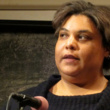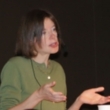All the single ladies: unmarried women and the rise of an independent nation
Description
More Details
9781508215080
9781508215073
9781476716565
Also in this Series
Published Reviews
Booklist Review
*Starred Review* Single women are taking up space in a world that was not built for them, Traister (Big Girls Don't Cry, 2010) writes in her groundbreaking look at the plight of unmarried women, both historically and in contemporary society. Citing the rise of the median age at which American women marry as well as the fact that, as of 2009, fewer than 50-percent of American women were wed, Traister explores the reasons why women are putting off marriage or forgoing it altogether as they pursue careers, relationships free from typical wifely duties, and single parenthood. Traister mixes interviews with contemporary young singles with stories of such trailblazers as Florence Nightingale, Gloria Steinem, and Oprah Winfrey. She delves into the many pitfalls women on their own are forced to navigate, from loneliness to being judged as somehow less valued because they aren't coupled. Though her focus is largely on American women, Traister does highlight how marriage rates are plummeting in Japan and Germany, where married women remain trapped in traditional roles, as opposed to more forward-thinking regions like Scandinavia. Exploring all aspects of single life social, economic, racial, and sexual Traister's comprehensive volume, sure to be vigorously discussed, is truly impressive in scope and depth while always managing to be eminently readable and thoughtful.--Huntley, Kristine Copyright 2016 Booklist
Publisher's Weekly Review
Incorporating a lively slew of perspectives of single ladies past and present, Traister (Big Girls Don't Cry) conducts a nuanced investigation into the sexual, economic, and emotional lives of women in America and the opportunities available when marriage is no longer "the measure of female existence." She takes into account the realities of loneliness, poverty, delayed reproduction, and childlessness that make singlehood difficult for some, as she fills out the picture with subjects across the spectrum of color and class, dismantling the persistent myths about female desire and ambition with earnest energy and facts. Traister is funny and fair in how she deals with the prevalent stereotypes and remaining stigmas attached to being an unmarried woman in society. She sticks to her central argument that the world is changing and policies need to catch up to the social reality. The result is an invigorating study of single women in America with refreshing insight into the real life of the so-called spinster. Agent: Linda Loewenthal, the Loewenthal Company. (Mar.) © Copyright PWxyz, LLC. All rights reserved.
School Library Journal Review
In 1960, more than half of Americans were married to heterosexual partners before reaching the age of 30. That statistic has dramatically reversed in the years that followed, with only 20 percent reaching that same milestone in the present decade. Traister traces the roots of this phenomenon much further back, from 1960, and demonstrates how single women have typically made the decision to marry later or not marry at all when given advantages such as education and career options. The understanding of how single women affect politics and social change is startling to say the least, and young women will find clarification and confirmation in this read. Being single is not a failure, nor is it a death sentence. Media outlets and politicians are often the source of urging women toward heterosexual marriage. Even though this push is typically intended to subjugate women, the book does not condemn the institution of marriage; in fact, the author makes the opposite case. Marriage should be an informed choice, Traister argues, and it should not mean giving up on dreams or aspirations. By weaving anecdotes with detailed research (source information as well as updates on the profiled women are provided), this volume will draw in young adults and help them comprehend the quiet and steady evolution that women have been spearheading for quite some time. VERDICT A stand-out, empowering selection providing substantive research; for general readers as well as those with an interest in feminism and social justice issues.-April Sanders, Spring Hill College, Mobile, AL © Copyright 2016. Library Journals LLC, a wholly owned subsidiary of Media Source, Inc. No redistribution permitted.
Library Journal Review
As Beyoncé sang, "Now put your hands up!" Today, only 20 percent of adults under the age of 29 are married, compared with nearly 60 percent in 1960, a dramatic shift in which unmarried women played a major role. In this compelling narrative, Traister (Big Girls Don't Cry: The Election That Changed Everything) investigates how scores of single women have contributed to important social and political movements that have changed U.S. history-before and after Betty Friedan and Gloria Steinem. A thoughtful journalist, Traister explores the history of the "spinster" and explains how issues such as class, race, sexuality, and religion have impacted single women throughout time, and how they in return have influenced the workplace, personal space, and the concept of family. In addition to her painstaking research, Traister includes stories from the unattached ladies themselves in more than 100 interviews and draws on pop culture references such as Sex & the City and Bridesmaids. While the image of the free, independent woman is considered a modern sensation, Traister reveals that she has always fought for the right to own her self-identity as well as for the rights of others. VERDICT This fast-paced, fascinating book will draw in fans of feminism, social sciences, and U.S. history, similar to Gail -Collins's When Everything Changed. [See Prepub Alert, 9/28/15.]-Venessa Hughes, Buffalo, NY © Copyright 2016. Library Journals LLC, a wholly owned subsidiary of Media Source, Inc. No redistribution permitted.
Kirkus Book Review
A feminist journalist argues that single women, who now outnumber married women in the United States, are changing society in major ways. Between 2010 and 2015, New York Magazine writer at large and Elle contributing editor Traister (Big Girls Don't Cry: The Election that Changed Everything for American Women, 2010, etc.) interviewed nearly 100 women across the country, selecting from them some 30 whose stories she relates here. Many of them are women like herselfcollege-educated New Yorkerswhich gives her book a definite slant. Before letting these women talk about their lives, the author turns to prominent women of earlier decadesAnita Hill, Betty Friedan, Gloria Steinemand to single ones of earlier times who were abolitionists, suffragists, labor agitators, and social reformers. The present, writes Traister, "is the epoch of the single woman, made possible by the single women who preceded it." Through her interviews, she explores their friendships with other women, relationships with men, sex and social lives, careers, freedoms, activism, independence, loneliness, living arrangements, and choices about children. At times, the author inserts her own story into the narrative, but she underrepresents the lives of poor women, minorities, and older widows. Although too often absent from the text, the needs of such women are recognized in an appendix that outlines changes in policies in wages, insurance, housing, welfare, and health care and in attitudes toward reproductive rights and family structures that single women must demand. If single women possess the political power that Traister attributes to this growing population ("a citizenry now made up of plenty of women living economically, professionally, sexually, and socially liberated lives"), big changes are on the way. An easy read with lots of good anecdotes, a dose of history, and some surprising statistics, but its focus on one segment of one generation of single women is a drawback. Copyright Kirkus Reviews, used with permission.
Booklist Reviews
*Starred Review* "Single women are taking up space in a world that was not built for them," Traister (Big Girls Don't Cry, 2010) writes in her groundbreaking look at the plight of unmarried women, both historically and in contemporary society. Citing the rise of the median age at which American women marry as well as the fact that, as of 2009, fewer than 50-percent of American women were wed, Traister explores the reasons why women are putting off marriage or forgoing it altogether as they pursue careers, relationships free from typical wifely duties, and single parenthood. Traister mixes interviews with contemporary young singles with stories of such trailblazers as Florence Nightingale, Gloria Steinem, and Oprah Winfrey. She delves into the many pitfalls women on their own are forced to navigate, from loneliness to being judged as somehow less valued because they aren't coupled. Though her focus is largely on American women, Traister does highlight how marriage rates are plummeting in Japan and Germany, where married women remain trapped in traditional roles, as opposed to more forward-thinking regions like Scandinavia. Exploring all aspects of single life—social, economic, racial, and sexual—Traister's comprehensive volume, sure to be vigorously discussed, is truly impressive in scope and depth while always managing to be eminently readable and thoughtful. Copyright 2014 Booklist Reviews.
Library Journal Reviews
As Beyoncé sang, "Now put your hands up!" Today, only 20 percent of adults under the age of 29 are married, compared with nearly 60 percent in 1960, a dramatic shift in which unmarried women played a major role. In this compelling narrative, Traister (Big Girls Don't Cry: The Election That Changed Everything) investigates how scores of single women have contributed to important social and political movements that have changed U.S. history—before and after Betty Friedan and Gloria Steinem. A thoughtful journalist, Traister explores the history of the "spinster" and explains how issues such as class, race, sexuality, and religion have impacted single women throughout time, and how they in return have influenced the workplace, personal space, and the concept of family. In addition to her painstaking research, Traister includes stories from the unattached ladies themselves in more than 100 interviews and draws on pop culture references such as Sex & the City and Bridesmaids. While the image of the free, independent woman is considered a modern sensation, Traister reveals that she has always fought for the right to own her self-identity as well as for the rights of others. VERDICT This fast-paced, fascinating book will draw in fans of feminism, social sciences, and U.S. history, similar to Gail Collins's When Everything Changed. [See Prepub Alert, 9/28/15.]—Venessa Hughes, Buffalo, NY
[Page 121]. (c) Copyright 2016 Library Journals LLC, a wholly owned subsidiary of Media Source, Inc. No redistribution permitted.Publishers Weekly Reviews
Incorporating a lively slew of perspectives of single ladies past and present, Traister (Big Girls Don't Cry) conducts a nuanced investigation into the sexual, economic, and emotional lives of women in America and the opportunities available when marriage is no longer "the measure of female existence." She takes into account the realities of loneliness, poverty, delayed reproduction, and childlessness that make singlehood difficult for some, as she fills out the picture with subjects across the spectrum of color and class, dismantling the persistent myths about female desire and ambition with earnest energy and facts. Traister is funny and fair in how she deals with the prevalent stereotypes and remaining stigmas attached to being an unmarried woman in society. She sticks to her central argument that the world is changing and policies need to catch up to the social reality. The result is an invigorating study of single women in America with refreshing insight into the real life of the so-called spinster. Agent: Linda Loewenthal, the Loewenthal Company. (Mar.)
[Page ]. Copyright 2016 PWxyz LLCSchool Library Journal Reviews
In 1960, more than half of Americans were married to heterosexual partners before reaching the age of 30. That statistic has dramatically reversed in the years that followed, with only 20 percent reaching that same milestone in the present decade. Traister traces the roots of this phenomenon much further back, from 1960, and demonstrates how single women have typically made the decision to marry later or not marry at all when given advantages such as education and career options. The understanding of how single women affect politics and social change is startling to say the least, and young women will find clarification and confirmation in this read. Being single is not a failure, nor is it a death sentence. Media outlets and politicians are often the source of urging women toward heterosexual marriage. Even though this push is typically intended to subjugate women, the book does not condemn the institution of marriage; in fact, the author makes the opposite case. Marriage should be an informed choice, Traister argues, and it should not mean giving up on dreams or aspirations. By weaving anecdotes with detailed research (source information as well as updates on the profiled women are provided), this volume will draw in young adults and help them comprehend the quiet and steady evolution that women have been spearheading for quite some time. VERDICT A stand-out, empowering selection providing substantive research; for general readers as well as those with an interest in feminism and social justice issues.—April Sanders, Spring Hill College, Mobile, AL. Copyright 2016 School Library Journal.



































